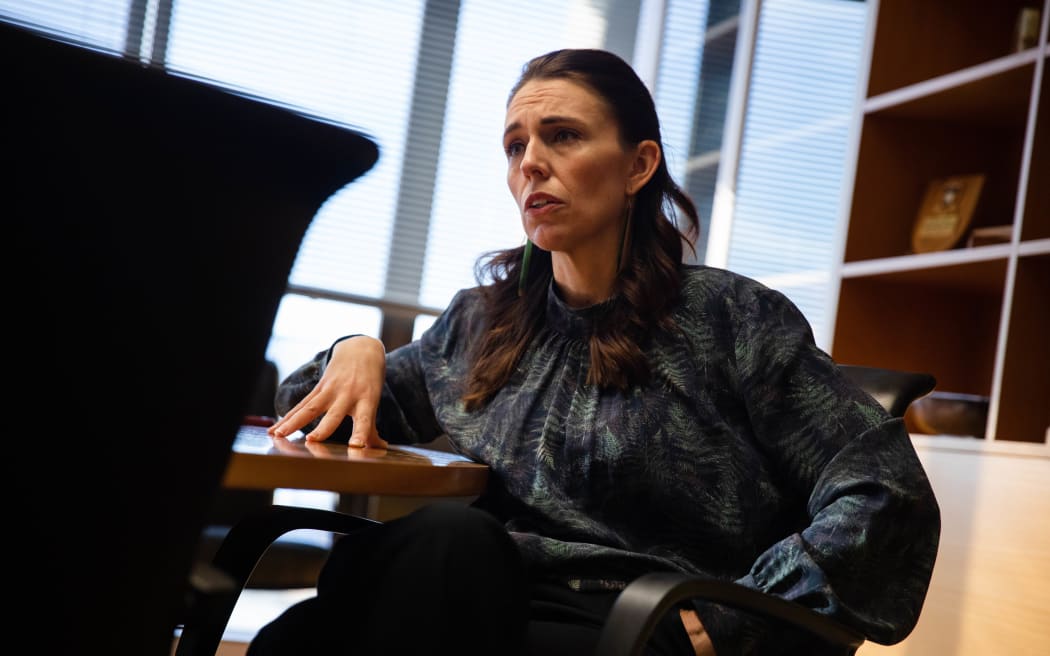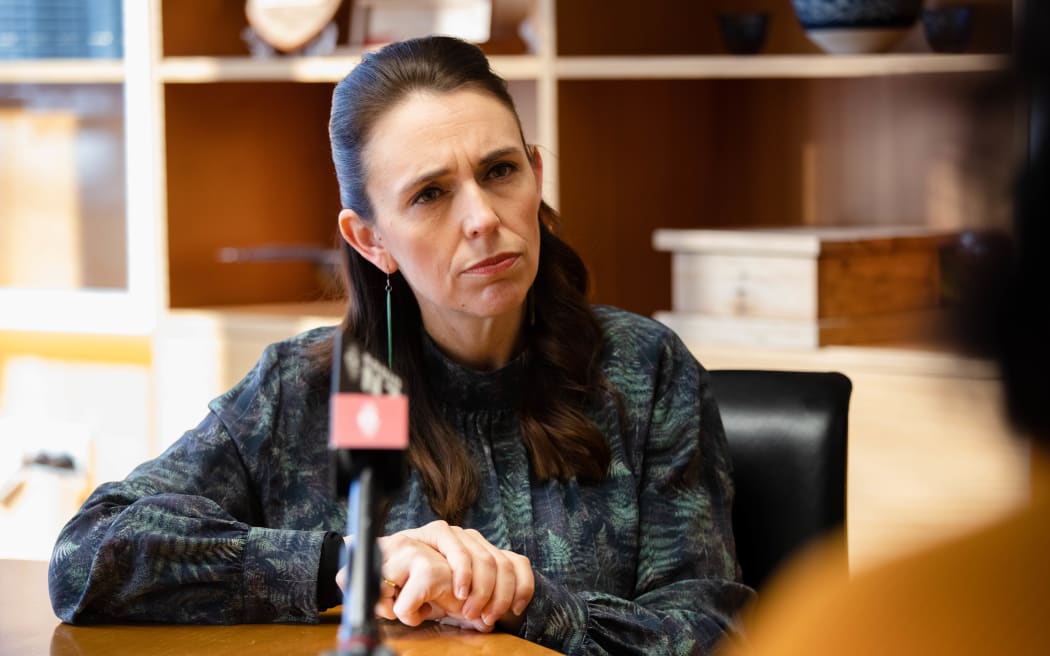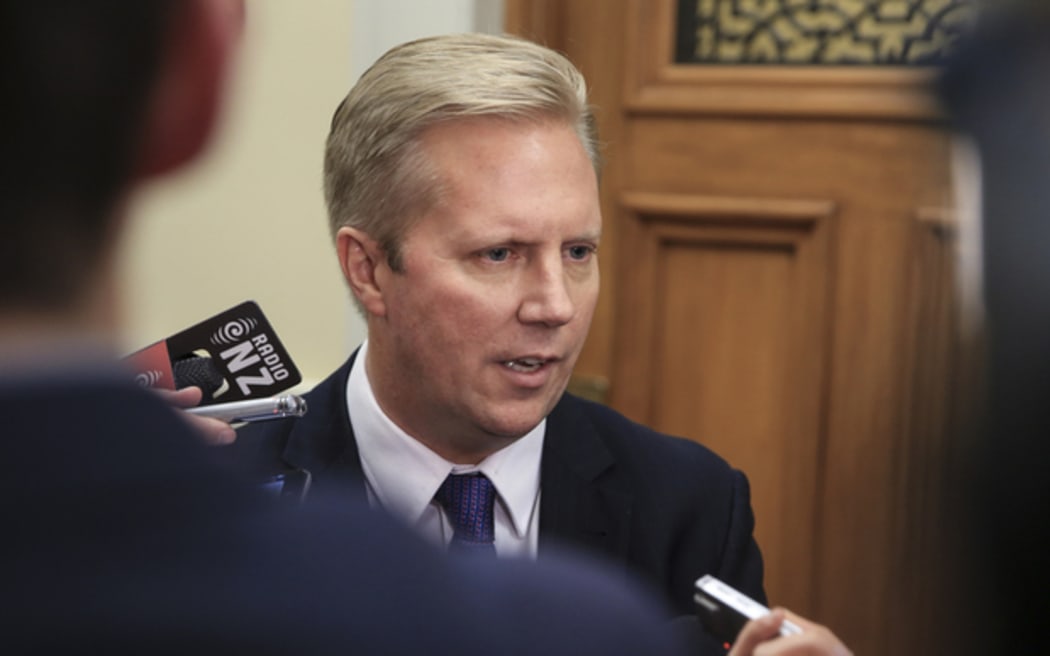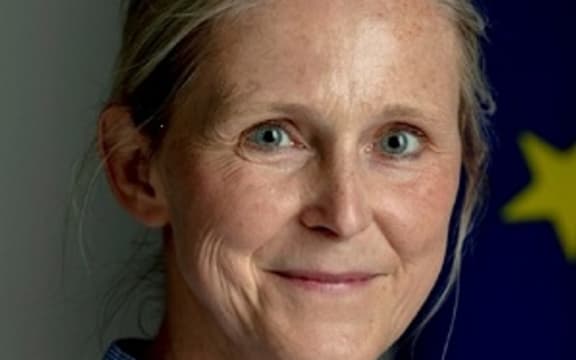The Prime Minister leaves for Europe today, where she will push to get a long-awaited free trade deal with the European Union over the line.

Photo: RNZ / Angus Dreaver
But Jacinda Ardern has left the door open to the possibility of departing from Brussels without an agreement if the EU fails to put forward an offer of real benefit to New Zealand farmers.
Ardern will first fly to Madrid, to attend the NATO (North Atlantic Treaty Organisation) leaders' summit, becoming the first New Zealand prime minister to do so
The summit will allow her to meet with a range of foreign leaders, and to participate in a session with the leaders of Australia, South Korea and Japan to discuss "key security issues for the Indo-Pacific."
Ardern's visit comes at a critical time for the region, with the war in Ukraine entering its fifth month. Russia's invasion has disrupted Europe's economy, supply chains and food security.
Ukraine's President Volodymyr Zelensky is to virtually attend the summit, where further support for Ukraine will be considered.
Ardern's five-day visit to Europe concludes in London, where she will meet with British Prime Minister Boris Johnson and the Duke of Cambridge.
EU-NZ FTA: "it was always going to be tough"
New Zealand and the European Union (EU) formally launched free trade negotiations in 2018 and progress since has been slow.
Negotiators agreed in March this year, during the 12th round of negotiations, to change approach and shift to rolling talks in an effort to speed up progress and finish the agreement. The government ha also asked negotiators to try to conclude talks by the end of June, in order to create some "momentum", Ardern said.

Photo: RNZ / Angus Dreaver
She described negotiations with the European Union as "tough", and said some countries had pushed back against New Zealand "very, very hard."
"Unlike, for instance, a UK free trade agreement, we're negotiating with 25 plus economies and negotiators. So it's an incredibly difficult environment, particularly because the areas where we're looking to gain commercially meaningful access are also the areas of significant sensitivity for European markets. So it was always going to be tough.
"It's proven to be tough, but we have pushed extraordinarily hard for the best possible outcome."
Europe's increased focus on food sovereignty, prompted by Russia's invasion of Ukraine, has also made talks challenging, Ardern said.
"We continue to make the argument that New Zealand has a role to play as a like-minded partner with ... like-minded values at our core, to model what a progressive free trade agreement can look like, and that's what we've been pushing for. But it is in an increasingly potentially protectionist environment."
READ MORE
- Jacinda Ardern prepares for Europe trip, first stop is critical NATO summit
- NATO says New Zealand will not be invited to join at summit, but develop its partnership
- New Zealand joins new Pacific partnership group with US, UK, Australia
- US vows more high-level engagement with Pacific islands amid China push
Ahead of Ardern's visit to Brussels, negotiators were working to resolve a number of "sticky issues", according to New Zealand's chief negotiator Vangelis Vitalis. The largest being the "big gap" between parties on EU market access for New Zealand sheep and beef.
In 2020, the EU's first formal agricultural market access offer was leaked. David Parker, who was New Zealand's trade minister at the time, described it as "protectionist."
Parker told European Commissioner for Trade Phil Hogan the offer was "derisory" and "disappointing".
"At the moment, the European Union export a kilogram of cheese per head of population to New Zealand. The offer back the other way was three grams of cheese per European consumer, and even then, with tariffs and volumetric controls," Parker said.
It is understood it wasn't until May of this year the EU put another agricultural market access offer on the table.
The Dairy Companies Association of New Zealand and Meat Industry Association had both expressed concern about that offer in recent weeks.
Dairy Companies Association chairman Malcolm Bailey said he had received information that suggested the EU was "doubling-down on keeping its market almost entirely shut to New Zealand dairy exporters."

Former National Party trade minister Todd McClay Photo: RNZ / Rebekah Parsons-King
National MP and former trade minister Todd McClay said the government shouldn't be afraid to leave Brussels without a deal and to keep negotiating to ensure New Zealand exporters get good access to the European market.
"If the prime minister comes back from Europe with a deal that doesn't deliver meaningful outcomes for dairy and for meat, she has let New Zealand exporters down. It will be increasingly more difficult when we negotiate with say India or with the US in the future to get a good outcome because they'll say 'you didn't get much from the European Union and you accepted a trade deal. We'll do the same as what they've done'."
Ardern would not say what the outcome of her visit to Brussels will be. But when asked if she would be willing to leave Europe still at the negotiating table she said "all options" will be kept on the table.
The EU is already New Zealand's largest source of imports and fourth largest export market, and two way trade between New Zealand and the EU is worth $16.5 billion annually.
The European Union's Ambassador to New Zealand Nina Obermaier said the bloc hoped to "bridge the remaining gaps" and conclude negotiations.
 Nina Obermaier Photo: Supplied
Nina Obermaier Photo: SuppliedThe war in Ukraine has motivated the EU to ensure its supply networks for food, fuel and other critical services would be more resilient.
"We are looking to trade with friends and like minded partners, and we are looking to expand our trading network. So I think ... the appetite to conclude trade agreements in a context where the global rules-based order is under threat has only become stronger. And it would be an important signal to show in this context, that we still can conclude trade agreements."
NATO
NATO secretary general Jens Stoltenberg invited the leaders of Australia, Japan, South Korea and New Zealand to attend the military alliance's meeting in Spain to demonstrate the alliance's "close partnership" with like-minded countries in the Asia Pacific region.
NATO will set its strategy for the next decade at the summit and define the security challenges the alliance faces and what it will do to address them.
Leaders will also discuss "strengthened" defence, further support for Ukraine, and Finland and Sweden's applications for membership.
While ministers, including Foreign Affairs Minister Nanaia Mahuta, have attended previous NATO meetings, this is the first time New Zealand has been invited to the Leaders Summit. New Zealand is not a member of the security alliance.
Considering the current global circumstances, which Ardern described as "extraordinary", there will be an increase of activity considered "outside of the norm".
At the summit, Ardern will seek the latest information on Russia's invasion of Ukraine, the "likely path" for the conflict, and the chances of a diplomatic resolution.
Ardern denied her participation showed New Zealand was shifting closer to the West.
"It shows that there is a war," she said.
"The environment we are in demands that countries work together and are collaborative, but it does not change for a moment the value set that we have, and the lens we will use to respond to everything, both in our sphere and beyond."
Ardern said she was always planning a trade mission to Europe at this time of the year.






